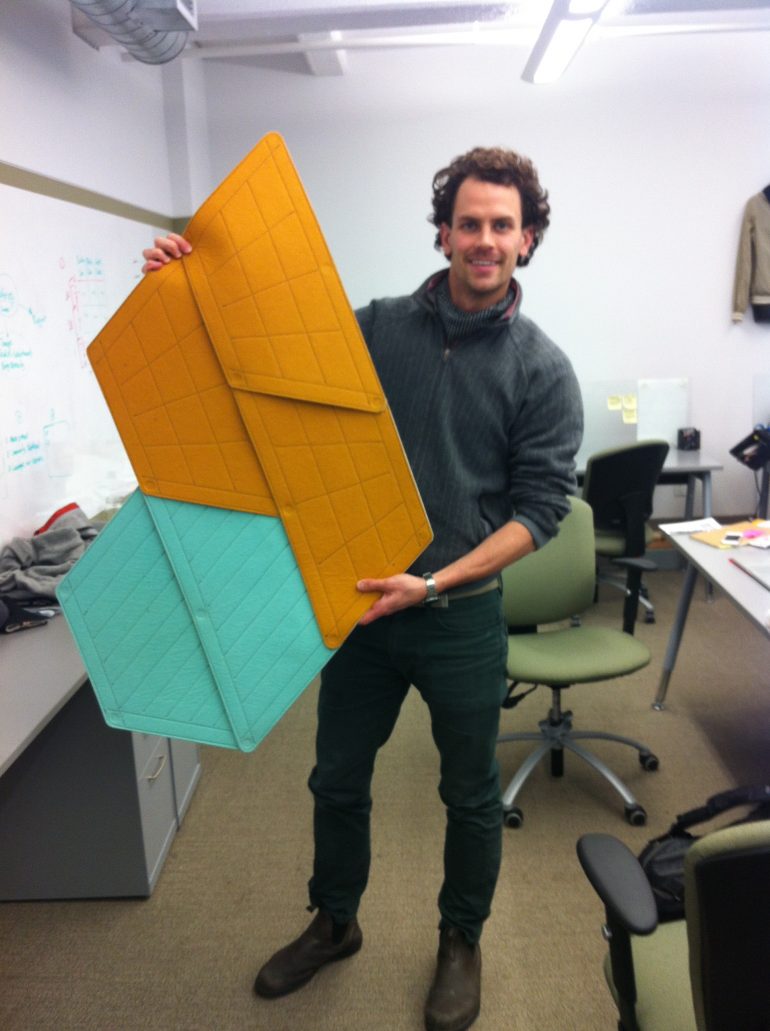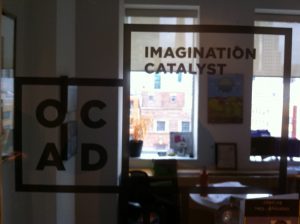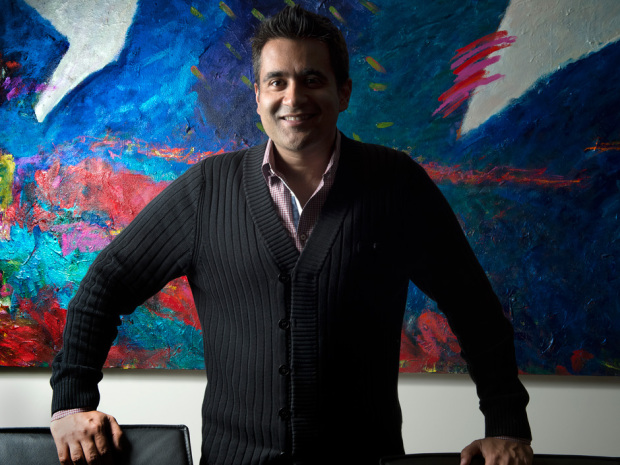The Ontario College of Art & Design’s (OCAD) Imagination Catalyst space launched in February of 2012 to decent media exposure. Since then the accelerator has been quietly producing cohorts of design and hardware-focused startups, potentially building the next great Kickstarter success stories (or great startups in general).
I took a stroll down to the space with entrepreneur-in-residence Sunil Sharma last Monday and came away impressed.
Several of the projects that cohort teams are working on were actually their thesis projects in their later years of an undergraduate degree at OCAD. As such, only OCAD U graduates, post-grad students, or faculty can participate. Past year’s participants built products such as a light-weight electric bicycle, 3D printing of complex surgical training tools, video-drones, moss graffiti, variety of wearable technologies, an easel for digital painting, and sustainable floor tiling made from coffee ground waste.
“It turns out that some of the things that OCADU is naturally really good at – such as wearable computing, 3D printing, industrial design and hardware devices – are some of the hottest and most investible areas of startup investing in the world right now,” Sharma told BetaKit.
It’s a one-year intensive program that provides free office space, access to resources, mentors and investors, it doesn’t take any equity and it doesn’t give out any capital either. The accelerator is headed up by Petra Kassun-Mutch, the former Entrepreneur in Residence at the University of Guelph.
Sharma used to run Extreme Startups before his current venture, STEM 7 Capital. He got involved with OCAD U because he was able to see first-hand the critical importance of design in the success of technology startups that Extreme was looking to invest in.
“Great design attributes are somewhat scarce with respect to investible and world-dominating companies. OCAD University has a great national and international reputation as a design-focussed university and their students have a lot to contribute towards building world-class companies here in Toronto,” said Sharma. “I felt that I could help with respect to connectivity and strategy, and I think it was in that context that I was brought on to assist the new startup accelerator we created called The Imagination Catalyst”
Some of the current projects included a flexible, wearable LED display that people can wear and display texts and graphics, all controlled via smartphone. Developed by Robert Tu, the product is called MeU. “The idea is that you’re supposed to put it in clothing or bags or any kind of wearable accessory, and some of the applications that I’ve been thinking about is a bike safety signal system,” said Tu.
Just across the room from Tu was Sam Kennedy, the creator of Feltro, an interactive construction toy for kids and adults that promotes open-ended creative play. It’s layered felted tiles with magnets inside them, encouraging the creation of dynamic and different forms and shapes. “One of the first things kids did was make things that you can wear on your body. You can make hats and dresses and also more 2-D things, carpets and tile formations,” said Kennedy.
Feltro, explained Kennedy, came out of an exploration of play and the importance of play for kids.”I was looking to create something that will merge the play space with the living space, along with opportunities for variable and lasting play that will still appeal to the aesthetic of the adult.”
And that’s only two of the roughly 12 projects currently working out of the space. The assumption, like Sharma said, is that with designers and design products receiving so much attention in today’s tech startup world, an accelerator like this is crucial for the community. It can serve as a pipeline for hiring if not a launch pad for design products to seriously take off.
“I think this initiative is important for two main reasons,” said Sharma. “One, brilliant design is what will ultimately separate startups that become world-dominating companies and those that you never hear of, and two, the university has a real opportunity to place its graduates into very sought-after and well-paying positions within technology companies that are in immediate need of this talent. Given that most startups ultimately fail, it’s reasonable to think that if we assist in placing some of our trained entrepreneurs into fast-growing companies, we have achieved another level of success for OCADU recent graduates.”
Sunil Sharma photo by Financial Post





